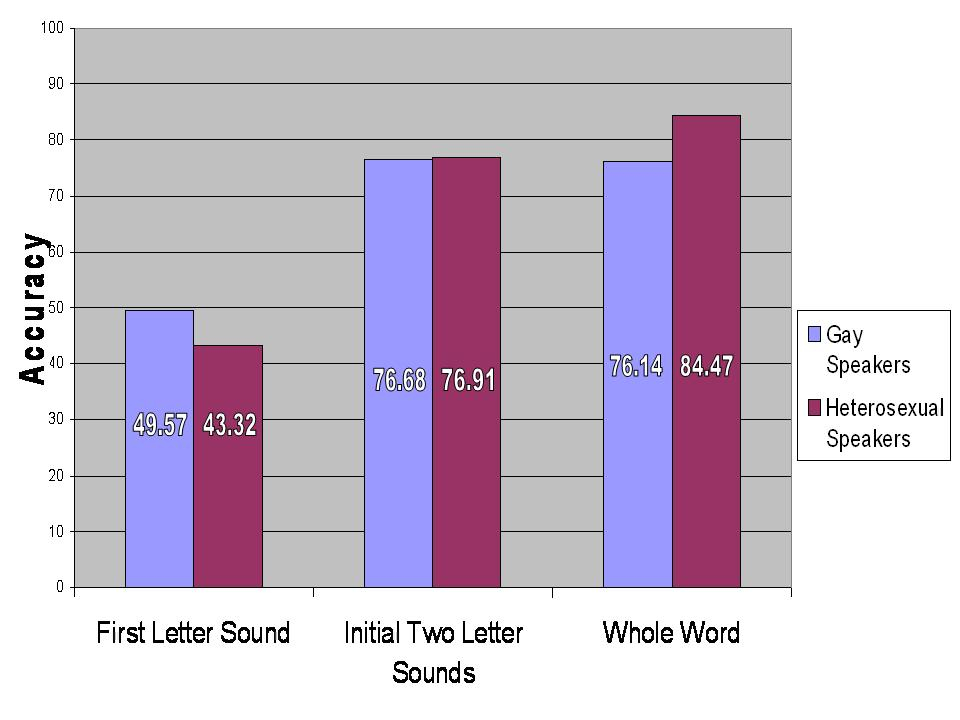
Erik Tracy – tracy.69@osu.edu
Nicholas Satariano – satariano.3@buckeyemail.osu.edu
Department of Psychology
Ohio State University
1827 Neil Avenue
Columbus, OH 43210
Popular version 1pSC19
Presented Monday afternoon, May 23, 2011
Imagine this common occurrence. Your cell phone rings and it’s an unfamiliar number. After answering the call, you inform the caller that they have dialed the wrong number. The caller apologizes for their mistake and hangs up. During this brief conversation, not only were the two people conveying their thoughts with one another, but also information about themselves, such as whether they were old or young, or male or female. Listeners are able to recognize these characteristics of the speaker fairly easily, but what about other more subtle characteristics, such as a person’s sexual orientation? In fact, listeners can identify the sexual orientation of a speaker after hearing less than a single word.
To come to this conclusion, we had gay and heterosexual males record a list of monosyllabic words (“mass”, “sell”, “food”, etc.). All of the words began and ended in a consonant and there was a vowel in the middle. Next, parts of the words were presented to listeners. Listeners heard either the initial letter sound “m”, the first two letter sounds “ma”, or the entire word “mass”. After hearing the utterance, listeners made a decision regarding the speaker’s sexual orientation.

Figure Caption: Results from Experiment #1
As can be seen in Figure 1, listeners were not accurate in determining the sexual orientation of the speaker when presented with the initial letter sound from the word. However, listeners were more accurate when the first two letter sounds were presented to them. When presented with the entire word, listeners were even more accurate in identifying the heterosexual speakers, but their accuracy levels remained the same when identifying the gay speakers.
B B B B B B B B B B B From these results, it seems as if listeners do not need to hear an entire word before making a decision regarding the speaker’s sexual orientation. They only need to hear the initial consonant and vowel before making a correct decision.